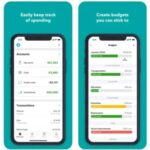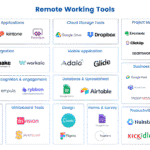
Introduction
Working from beaches, mountains, or your favorite city is priceless — but taxes aren’t optional. As a digital nomad, you’ll juggle tax residency rules, multiple currencies, foreign clients, and deductions that can seriously affect what you keep. This guide lays out practical steps to stay compliant and legally minimize your tax bill in 2025. The are tax tips for digital nomads
- Introduction
- 1) Understand Tax Residency (The #1 Driver of Your Tax Bill)
- 2) Income Sources & Where They’re Taxed
- 3) Set Up Smart Banking & Payments (Cut Fees, Stay Traceable)
- 4) Track Every Expense (Your Deductions Live Here)
- 5) Taxes When You’re Paid in Different Currencies
- 6) Quarterly Estimates & Withholding (Stop Surprise Bills)
- 7) Retirement, Social Security & Health (Don’t Skip the Safety Net)
- 8) Country Hopping & “Tax-Free” Myths
- 9) Recordkeeping That Withstands an Audit
- 10) Common (Costly) Mistakes to Avoid
- Tools Stack (Nomad-Friendly)
- Quick Checklist (Copy/Paste)
Important: This is educational, not legal/financial advice. Tax law varies by country. Consult a licensed tax professional in your jurisdictions.
1) Understand Tax Residency (The #1 Driver of Your Tax Bill)
- You’re usually taxed where you’re tax-resident. Many countries use a days-in-country test (e.g., 183 days) plus ties like home, family, or center of vital interests.
- Multiple residencies can happen. If two countries claim you, look to tax treaties (tie-breaker rules).
- Keep records: Flight tickets, entry/exit stamps, accommodation leases, and a travel log (Notion/Sheets).
Action: Map your last 12 months by country and days. Flag any country where you cross 90/120/183 days.
2) Income Sources & Where They’re Taxed
- Employment income: Often taxed in your country of residence, sometimes also where the work is performed (treaties matter).
- Freelance/contract income: Typically taxed where you’re resident; withholding may occur in client’s country.
- Passive income: Dividends, interest, and royalties may face withholding taxes; treaties can reduce rates.
Action: List income streams → note payer country → check if any withholding or forms (e.g., W-8BEN equivalents) are required.
3) Set Up Smart Banking & Payments (Cut Fees, Stay Traceable)
- Multi-currency accounts (e.g., Wise, Revolut, Payoneer) reduce FX costs and make bookkeeping easier.
- Dedicated business account keeps your records clean for audits.
- Invoicing tools (e.g., Xero, QuickBooks, Zoho Books) generate compliant invoices and reports.
Affiliate angles: Wise/Revolut/Payoneer, Xero/QuickBooks/Zoho, invoicing tools.
4) Track Every Expense (Your Deductions Live Here)
Typical deductible categories for nomad freelancers/contractors (verify locally):
- Work tools & software: laptops, peripherals, SaaS (Notion, Adobe, time-tracking).
- Communications: mobile data, roaming, dedicated work internet.
- Co-working & office: day-passes, memberships, home-office portion (pro-rata by space/time).
- Travel for business: flights, local transport, visas, short-stay accommodation tied to client work or events.
- Professional fees & insurance: accountants, legal consults, professional indemnity, travel health (if required for work).
- Education: relevant online courses & certifications that maintain/improve income.
Action: Use a receipts app (Expensify, QuickBooks, Zoho Expense). Tag by category monthly.
5) Taxes When You’re Paid in Different Currencies
- Choose a functional currency for your books (often your residency currency).
- Record FX at transaction date; your accounting tool should handle gains/losses.
- Minimize FX leakage: batch conversions on favorable rates; compare spreads.
6) Quarterly Estimates & Withholding (Stop Surprise Bills)
- Pay provisional/estimated taxes quarterly if required in your residency country.
- Ask clients about withholding rules. Provide treaty paperwork where applicable to reduce it.
Action: Create a rule: set aside 25–35% of each invoice into a tax sub-account (adjust to your rates).
7) Retirement, Social Security & Health (Don’t Skip the Safety Net)
- Pension/retirement contributions may be tax-deductible in your residency country.
- Social security/medical schemes: some countries require contributions even for remote workers.
- International health insurance can be deductible in some jurisdictions (check rules).
8) Country Hopping & “Tax-Free” Myths
- Visa-free stays aren’t tax-free. Immigration rules ≠ tax rules.
- Frequent moves reduce home-ties but can increase audit risk if records are poor.
- Digital nomad visas: Some include simplified tax regimes or exemptions; read the fine print.
9) Recordkeeping That Withstands an Audit
- Keep 7–10 years of digital backups (PDF invoices, receipts, contracts, bank statements).
- Maintain travel logs, client SOWs, time sheets (Toggl), and boardings/visas.
- Store docs in two places (e.g., Drive + Encrypted SSD).
10) Common (Costly) Mistakes to Avoid
- Mixing personal and business spending.
- Ignoring tax residency while overstaying tourist days.
- No quarterly tax savings → penalty & interest.
- Rounding up “everything travel” as business (keep it defensible).
- Forgetting double-tax relief claims (credits/exemptions) where eligible.
Tools Stack (Nomad-Friendly)
- Banking/FX: Wise, Revolut, Payoneer
- Accounting: Xero, QuickBooks, Zoho Books, Wave (free)
- Expenses: Expensify, Zoho Expense
- Time/Projects: Toggl, Harvest, Notion
- Storage: Google Drive, Dropbox, Proton Drive
Affiliate opportunities: All of the above via Impact, PartnerStack, CJ, or direct programs.
Quick Checklist (Copy/Paste)
- Log days per country (aim <183 days unless planned)
- Open business + multi-currency accounts
- Pick accounting + expenses app and categorize monthly
- Set aside tax % each invoice (25–35% placeholder)
- File/claim treaty forms where applicable
- Back up receipts/contracts/travel logs
- Book an annual consult with a cross-border tax pro










This is my first time pay a quick visit at here and i am really happy to read everthing at one place